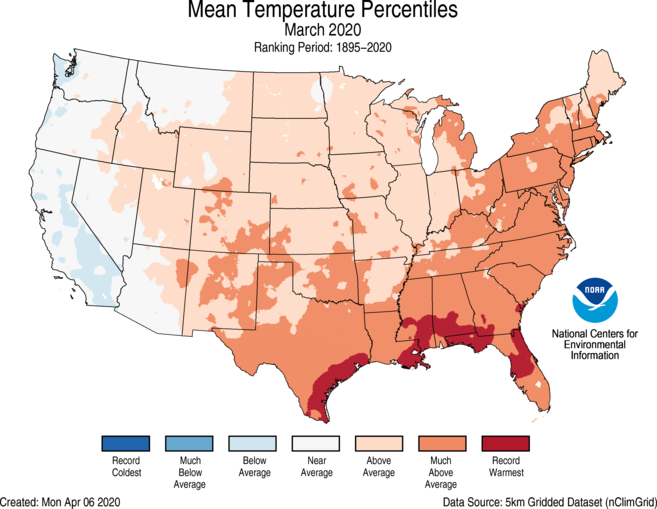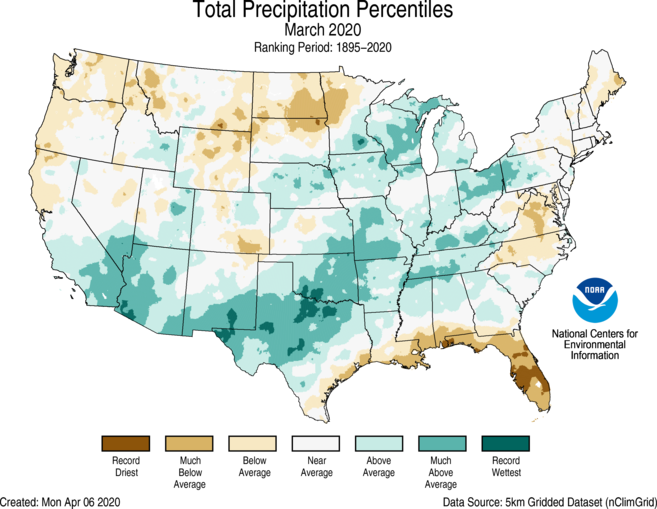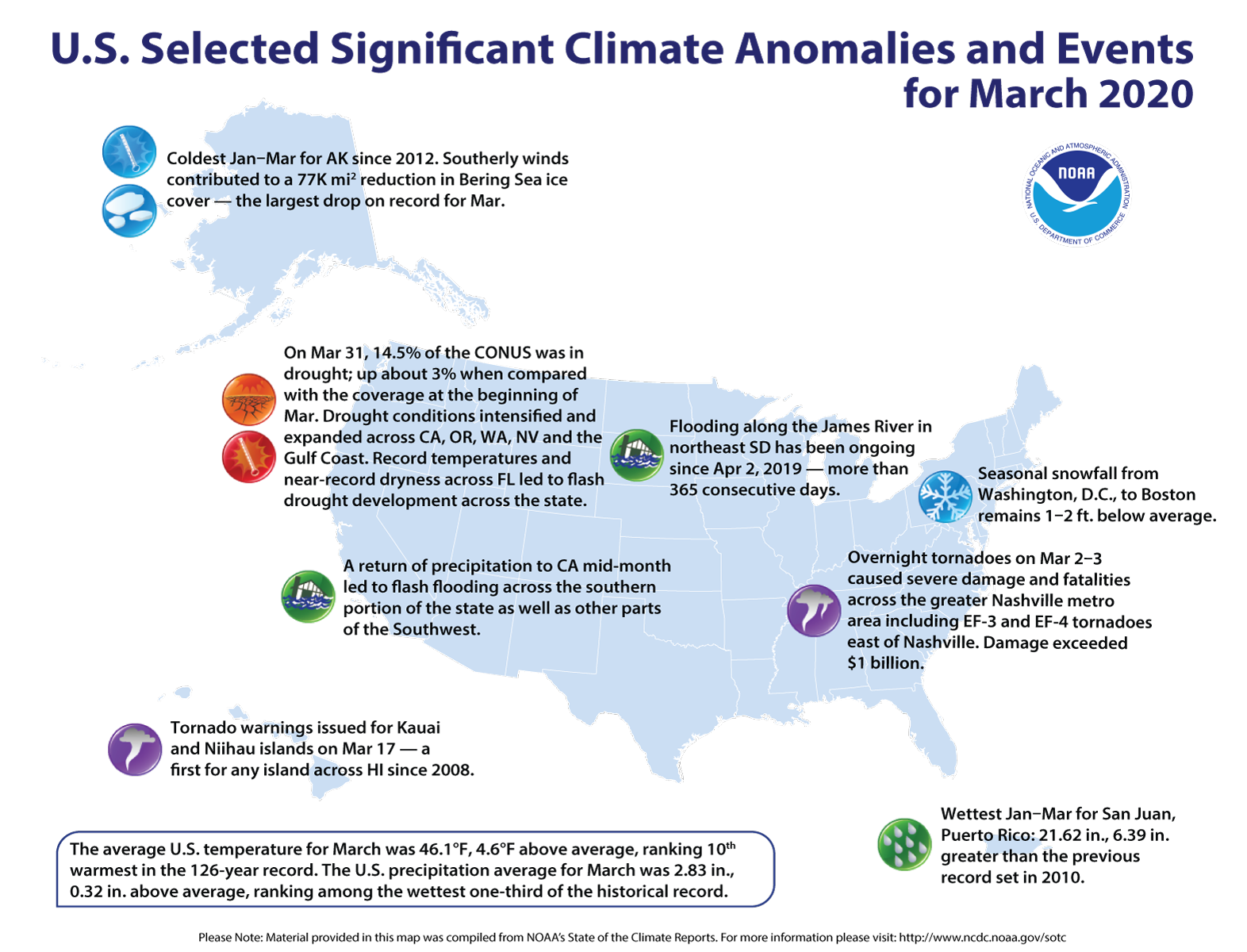March U.S. Weather Recap - Heat and Storms
Tragically, the nation has endured two billion-dollar weather and climate disasters this year, so far — in January and March.
Here are more highlights from NOAA’s latest monthly U.S. climate report:
Climate by the numbers
March 2020

The average monthly temperature across the contiguous U.S. was 46.1 degrees F (4.6 degrees above the 20th-century average), making it the 10th-hottest March on record.
Florida saw its warmest March on record, and 17 other states from Texas to New England tallied a top-10 warmest March.
The average precipitation last month across the contiguous U.S. was 2.83 inches (0.32 of an inch above average), ranking in the wettest third of the 126-year climate record.
Above-average precipitation fell from the Southwest northeastward into the Great Lakes. Both Oklahoma and Texas had a top-10 wettest March.

Year to date and billion-dollar disasters
The average U.S. temperature for the year to date (January through March) was 39.3 degrees F (4.1 degrees above the 20th-century average), which ranked 8th-warmest on record.
The contiguous U.S. kicked off the year on a soggy note as well, with a year-to-date average rainfall of 8.02 inches — 1.06 inches above average.Moreover, the U.S. saw two billion dollar disasters since the beginning of the new year:
-
From January 10 to 12, widespread storms and flooding swept from the South to the Midwest, including tornadoes, severe flooding and coastal damage along the Great Lakes.
-
During March 2 and 3, overnight tornadoes in and around Nashville, Tenn., killed dozens of people and left a long swath of collapsed buildings and destroyed properties.

More notable climate events in March
-
Bering Sea saw a record ice melt: The Bering Sea’s ice cover started the month above average, but southerly winds pushed warmer water and warmer temperatures into the region causing the largest drop in March ice extent on record.
-
A snowy month for parts of Alaska: The Headquarters for Denali National Park and Preserve experienced its snowiest four-day period on record for March, with 32.6 inches of snow falling between March 23 and 26.
-
U.S. drought conditions intensified: By the end of March, 14.5% of the contiguous U.S. was in drought, up from 11.5% at the beginning of the month.